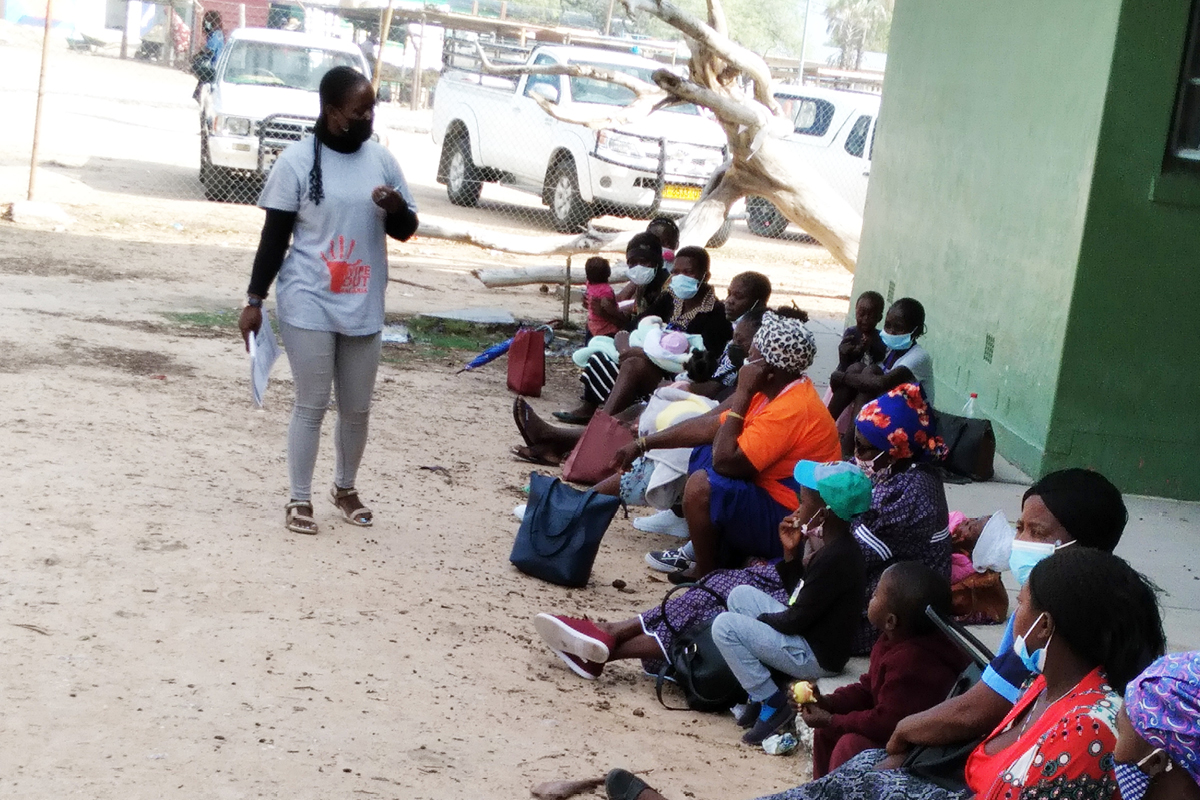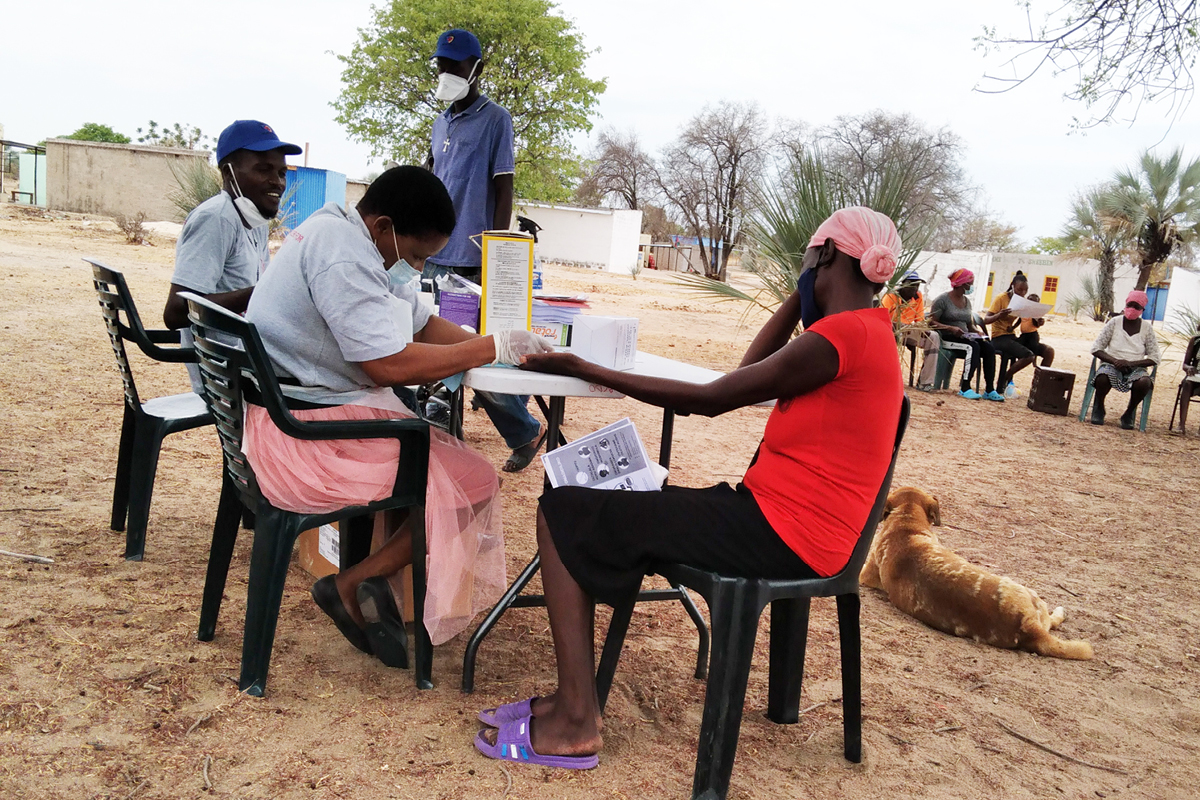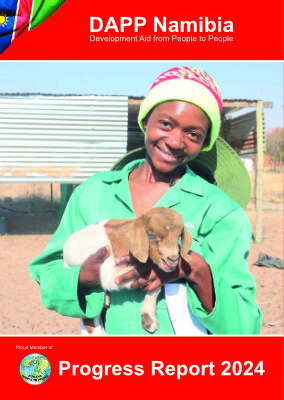This is the slogan for the malaria campaign launched by the Ministry of Health and Social Services and supported by DAPP Namibia Community Health Workers working in the northern regions where malaria is a threat
The DAPP Malaria programme is implemented in the Zambezi, Kavango East, Kavango West, Ohangwena, and Omusati regions with support from the Global Fund to Fight AIDS, TB and Malaria (GFATM) through the MoHSS. The programme works with Community Health workers to provide people in malaria prone areas with awareness, prevention, test and treat, and surveillance services.
In 2021, the DAPP Malaria programme implemented test and treat for malaria in communities as well as malaria information campaigning. 33,363 people were reached with health education in the communities, 2,631 people received community-level testing for Malaria, and 1,307 community outreach events were conducted.
 “My name is Metirde, I am a Community Health Worker in the DAPP Malaria Programme in the Ohangwena region:
“My name is Metirde, I am a Community Health Worker in the DAPP Malaria Programme in the Ohangwena region:
I am attached to the Epinga clinic in Eenhana district. Firstly, us Community Health Workers were trained in the theory and testing for malaria in a training session. Thereafter we were practicing testing for malaria during three months at the clinics.
One day after finishing my three months practice at the clinic I visited a homestead, where I found a childsick in bed. Her temperature was high and since that could be a sign of malaria, I offered the mother that I could test the child. The child tested positive for malaria and therefore I reported the situation to the nurse in charge at the clinic right away.
The nurse in charge was worried that it could be serious and she called an ambulance to pick up the child and transfer her to the Eenhana Hospital. It was indeed serious and complicated malaria. The child spent two weeks in hospital under good care and medication.
I tested the other members of the household but fortunately none of them had malaria. After two weeks the child had recovered and came home again.
 I have to admit that I was a bit nervous if I had interpreted the result correctly because it was my first time to find a alaria positive person in the community. But I was encouraged when the mother of the child came to appreciate my counselling skills and talked with her, so she managed to keep calm, while also reporting to the nurse in charge for advice, because I could see that the child was in a bad condition.
I have to admit that I was a bit nervous if I had interpreted the result correctly because it was my first time to find a alaria positive person in the community. But I was encouraged when the mother of the child came to appreciate my counselling skills and talked with her, so she managed to keep calm, while also reporting to the nurse in charge for advice, because I could see that the child was in a bad condition.
From that day I enjoyed my work more, not even fearing of testing a person and finding him or her malaria positive. I am looking forward to be part of getting to zero local cases of malaria and eliminatemalaria from Namibia.”



